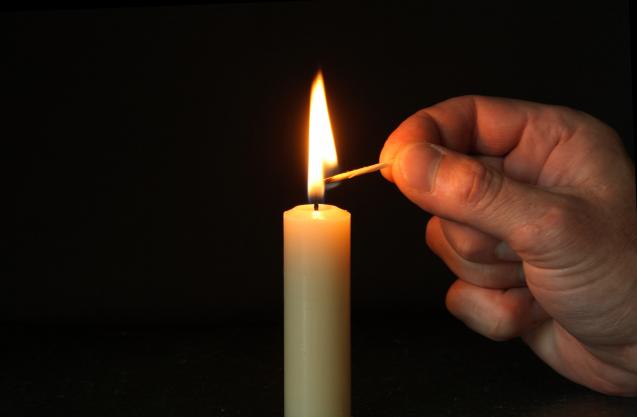
Understanding The Importance Of Level 2 Electrician's Qualifications
In New South Wales (NSW), the contestable works program under the Electricity Supply Act 1995 sets the standards for the construction, installation, and maintenance of electrical connections. Accredited Service Providers (ASPs) are responsible for carrying out these works, and they must adhere to the highest standards to guarantee the integrity of the network.
To maintain the high standards required by the contestable works program, it is vital that ASPs employ suitably qualified and registered employees and sub-contractors. These professionals must have the necessary knowledge, skills, and expertise to handle various electrical tasks effectively.
If you require the services of a Level 2 electrician or need assistance with contestable works, it is advisable to contact Service NSW or conduct a search to find out which ASPs are available in your area. By choosing a qualified and experienced electrician, you can have peace of mind knowing that your electrical connections are in safe hands.
Understanding the Fundamentals of Electrical Work
Understanding the fundamentals of electrical work is crucial for those seeking professional qualifications in the field. Electricians play a vital role in ensuring the safety and functionality of electrical systems in various settings.
Proper training is essential for an electrician to develop the necessary knowledge and skills. This includes both theoretical and practical training on electrical installation, maintenance, and repair. A comprehensive understanding of electrical principles, codes, and regulations is necessary to perform tasks efficiently and adhere to safety protocols.
Electricians can specialise in different areas, such as residential, commercial, or industrial electrical work. Each specialisation comes with its own set of skills and knowledge requirements.
Ordinary electricians, also known as level 1 technicians, handle basic electrical tasks, repairs, and maintenance. They are typically responsible for tasks like installing electrical outlets, replacing light fixtures, and troubleshooting electrical problems in residential and workplace settings.
Having professional qualifications in electrical work provides individuals with the necessary expertise to perform tasks safely and effectively. It ensures that electrical systems are installed, maintained, and repaired in accordance with industry standards and regulations. By hiring qualified electricians, individuals and businesses can have peace of mind knowing that their electrical needs are being handled by professionals.
Distinguishing Between Different Electrician Levels
When it comes to electrical services, it's important to understand the different levels of electricians and their respective roles and responsibilities.
At the entry-level, we have the level 1 electrician. This is also known as an ordinary electrician or a level 1 technician. Their primary focus is on basic electrical tasks, repairs, and maintenance. Level 1 electricians commonly handle responsibilities such as installing electrical outlets, replacing light fixtures, and troubleshooting electrical problems in residential and workplace settings. They have a solid foundation of knowledge and skills in electrical installation and repair.
Moving up the ladder, we have the level 2 electrician. This is a more specialised role that requires further training and qualifications. Level 2 electricians have expertise in handling more complex electrical installations and repairs. Their responsibilities might include tasks like working with overhead service lines, underground service lines, and electrical connections. In addition, level 2 electricians are qualified to work on commercial properties and deal with electrical systems on a larger scale.
Within the level 2 electrician classification, there are different classes that determine their authorised scope of work. These classes range from 2a to 2c and have specific requirements and limitations according to regulatory standards. Each class enables the level 2 electrician to perform a particular set of tasks and services, ensuring that they have the necessary expertise and qualifications for the job.
Recognising the Significance of Proper Training in the Electrician Profession
Proper training plays a crucial role in the electrician profession, ensuring that professionals have the necessary skills and knowledge to safely and effectively perform their job. Electricians work with complex electrical systems and equipment, where mistakes can result in serious consequences such as electrical shocks, fires, or even fatalities. Therefore, it is imperative for electricians to undergo comprehensive training that covers both theoretical and practical aspects of the field.
To become a qualified electrician, there are various training courses available from reputable institutions. These courses focus on different areas of expertise, such as overhead service lines, underground service lines, electrical installation, and electrical repairs. Institutions offering these courses equip electricians with the fundamental principles, regulations, and best practices in the electrical industry. Some recognised institutions include endeavour energy and accredited service providers.
Proper training not only ensures that electricians are aware of safety procedures, but it also enables them to understand the complexities of electrical systems and provide effective solutions to electrical problems. By possessing the necessary skills and knowledge, trained electricians can handle a wide range of electrical tasks, including the construction of service lines, removal of service protection devices, and the installation and maintenance of electrical equipment.
Identifying the Responsibilities of a Level 2 Electrician
A Level 2 electrician holds advanced qualifications that enable them to undertake a range of responsibilities beyond those of a regular electrician. These professionals are authorised to work on installations, maintenance, and repairs on service lines between the electrical supply network and private properties.
Level 2 electricians are trained to handle more complex tasks, such as overhead and underground service lines, underground power lines, and private power poles. They are skilled in connecting and disconnecting electrical installations, including meters and service mains, ensuring the safe and efficient transmission of electricity to residential and commercial properties.
Additionally, Level 2 electricians are responsible for identifying and rectifying electrical defects in the service lines, as well as repairing and replacing service fuses. They play a critical role in resolving electrical emergencies, providing prompt and reliable services to ensure the continuity of electrical supply.
Level 2 electricians undergo specialised training and hold specific qualifications, such as the Certificate III in Electrotechnology Electrician - Systems Electrician. This training equips them with the technical knowledge and expertise required to perform their advanced duties safely and effectively.
Having Level 2 electricians within the electrical services industry ensures that the more complex aspects of electrical installations, maintenance, and repairs are handled by qualified professionals, providing peace of mind to both residential and commercial property owners.
The Role of Certifications in the Electrician Profession
Certifications play a significant role in the electrician profession as they validate an electrician's skills and knowledge. These certifications are a testament to an electrician's competence and expertise in their field, providing reassurance to clients that they are hiring a professional who meets industry standards.
The electrical industry offers a wide range of certifications that cater to different specialisations. These certifications are relevant to specific areas of expertise within the field, such as residential, commercial, industrial, or renewable energy. By obtaining these certifications, electricians can demonstrate their proficiency in carrying out electrical work in various environments and ensure they are up to date with the latest industry practices and regulations.
Certifications also provide electricians with opportunities for career advancement and specialisation. By acquiring advanced certifications, such as those related to management or safety, electricians can position themselves as experts in their field and expand their job prospects.
Certifications are essential in the electrician profession as they validate an electrician's skills, demonstrate their competence in different specialisations, and enhance their career opportunities. Employers and clients can have confidence in hiring certified electricians, knowing that they have the necessary knowledge and expertise to handle electrical projects effectively and safely.
Conclusion
In conclusion, professional qualifications in electrical services play a vital role in the industry. These certifications not only showcase an electrician's expertise and competency but also ensure that they are equipped with the necessary knowledge and skills to perform their tasks safely and effectively. By obtaining certifications that are relevant to their specialisation, electricians can enhance their career prospects and position themselves as industry experts.
Additionally, the contestable works program under the NSW Electricity Supply Act 1995 is a crucial aspect of the electrical industry. This program allows for competition and promotes the involvement of Accredited Service Providers (ASPs) in the construction and maintenance of electrical service lines. The eligibility criteria for ASPs, as well as the requirements for their employees and sub-contractors, ensure that only qualified professionals are authorised to undertake these responsibilities.
It is important to note the distinction between an Electrician's licence and Registered Electrical Contractors (REC) registration. While an Electrician's licence is evidence of an individual's competency to carry out electrical work, REC registration allows individuals to offer electrical contracting services. This differentiation highlights the importance of compliance with regulations and industry standards for both individual electricians and electrical contracting companies.
In summary, professional qualifications not only provide electricians with career advancement opportunities but also ensure the safety and quality of electrical services. By staying updated with the latest industry practices and regulations through certifications, electricians can continue to deliver excellent work and provide peace of mind to their clients.




Level 1 electrician isnt actually your standard electrician but rather a more specialised and qualified electrician. Your standard electrician would be classified as an A grade electrician. ( no levels involved )